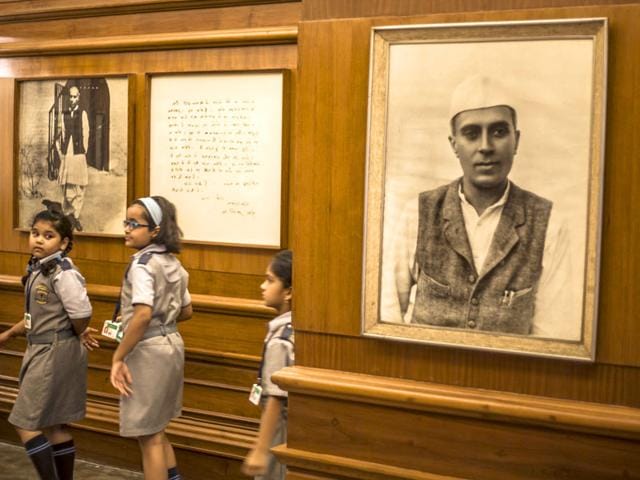Using cultural institutions for govt propaganda isn't appropriate
The NDA government’s announcement that it plans to revamp 39 cultural institutions, including the iconic Nehru Memorial Museum and Library (NMML), has kicked up a huge controversy. Understandably, the Congress is miffed; it has called the government’s plan “diabolical” and accused it of “subverting and diluting” the essential spirit and character of the NMML.
The NDA government’s announcement that it plans to revamp 39 cultural institutions, including the iconic Nehru Memorial Museum and Library (NMML), has kicked up a huge controversy. Understandably, the Congress is miffed; it has called the government’s plan “diabolical” and accused it of “subverting and diluting” the essential spirit and character of the NMML.

So what’s the government keen to do?
First, it wants to acquire, preserve and maintain material related to nationalist leaders of modern India. “The freedom struggle is not about one person [Nehru/Gandhi]. Our purpose is that all eminent people associated with the freedom struggle and those who worked towards building a modern India find a place in NMML,” minister of state (independent charge) for culture and tourism Mahesh Sharma said.
The government’s “eminent people” list contains Veer Savarkar, Deen Dayal Upadhyaya and Netaji Subhash Bose. Incidentally, the government recently refused to declassify files related to Bose as it would ‘adversely affect foreign relations’ even though Prime Minister Narendra Modi after assuming office had declared that the files would be made public.
The government is not wrong per se in trying to initiate more research into the lives and times of public figures other than the Congress luminaries. History is not a static subject and should not be confined to a certain section of leaders and society; expanding the scope of research will only enrich our history and lead to more stringent evaluation.
No public figure or his/her followers should be afraid of such constant evaluation. EH Carr in What is History? defines the subject as “a continuous process of interaction between the historian and his facts, an unending dialogue between the present and the past”.
In fact, the NMML’s progressive charter shows that the autonomous organisation is dedicated to the objective of ‘promoting advanced research on modern and contemporary India’, and it can certainly not be about a handful of leaders. However, what is of utmost importance here is to ensure that the research into the lives and contributions of non-Congress leaders is unbiased.
And this would be the real test of the government. Its recent handling of institutions like the ICHR and FTII, however, does not inspire much confidence.
The second change that the government wants to do is to make the NMML more “contemporary”, recasting it as a museum of governance, including the PM’s campaign for smart cities and Indian Space Research Organisation’s unmanned flight to Mars.
Third, the library too will be a place where governance and international issues are discussed. For instance, scholars from West Asia could be invited to debate on the perils of the Islamic State or discuss the PM’s UAE visit.
While discussions on contemporary issues are acceptable, focusing them only on the PM’s policies will reveal what the government’s real intention is: Further its own agenda to rehaul and ‘rebalance’ India’s history.
But the NMML is not the place for such agendas; there are enough institutions to further the views on history and contemporary India. Among the three plans mentioned above, the second one is truly bizarre: How can a research centre with a clear mandate become a ‘museum’ for government programmes?
India can do with more research into its history, but the aim here may turn a premier organisation into an extension of the government’s propaganda machinery. This does not bode well for the health of our institutions.





